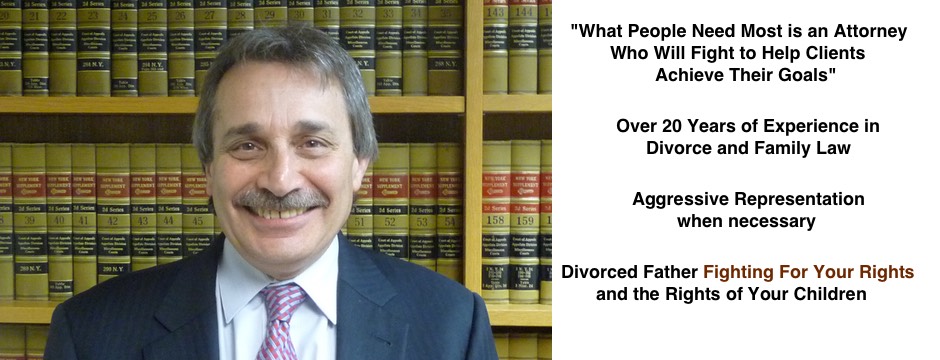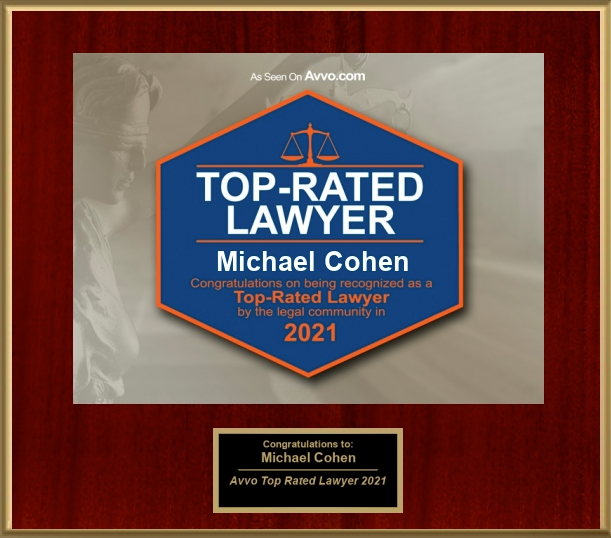
Contact
Call 516-280-6806 - I believe that YOUR MONEY is better spent on yourself, your children and your future, not on legal fees. Serving Nassau, Suffolk, and Westchester Counties, as well as the five boroughs of NYC
Divorce Law
Though sometimes individuals obtain a divorce without legal assistance, if you have children, substantial assets, or will need financial assistance from your spouse once the marriage is dissolved, it is best for you to consult a divorce attorney
Uncontested Divorce
Understanding Uncontested Divorce in New York State: A Guide by Divorce Attorney Michael Cohen Introduction Divorce is a challenging and emotional process, but understanding your options can make it more manageable. In New York State, an uncontested divorce is a streamlined way for couples to dissolve their marriage when they agree on key issues. As […]
High Net Worth Divorce in New York
Divorces involving individuals with a high net worth are often complicated, as they entail various aspects that can be challenging to navigate. This blog post aims to shed light on the complexities of high net worth divorces in New York, covering topics such as businesses owned, retirement accounts, trusts, pensions, inheritance, and child support and […]
College Tuition and 529 Plan- How are responsibilities divided when getting a divorce?
College Tuition and Fees According to the college board, the average cost of tuition and fees for the 2010-2011 school year was $27,293 at private colleges, $7,605 for in state residents at public colleges and $19,595 for out of state residents attending public universities. These numbers do not include room and board expenses. In New […]
How Long Does It Take To Get A Divorce In New York?
Going through a divorce can be a very emotional time in a person’s life, therefore, many people want to know what they should expect before initiating the divorce proceedings. One of the questions often posed by people considering initiating a divorce proceeding is, ‘how long does it take to get a divorce?’. If you are […]
Orders Of Protection
One major issue that is frequently dealt with is getting an order of protection against a person or multiple people. You are able to get an order of protection against someone that you have a child with, a family member that you are related to by blood or marriage, someone that you were in an intimate relationship with, or a current or former spouse in Family Court.
In Criminal Court, you can get an order of protection against someone with whom you share no relationship. You may apply for an order of protection in both courts at the same time. Your children may also be covered by the order of protection. If you are asking for the order of protection, you would be called a petitioner, while the person who you are getting the order of protection against is the respondent. In Criminal Court, the respondent would be called a defendant instead.
The affidavit of service must be filed to show that the respondent or defendant was told about the case. Both of the parties have the right to an attorney, and the order of protection that would be drawn up will likely ask for the person or persons to not contact you through telephone, email, or letters, not to go to your job, residence, etc., not to harass, threaten, menace, or commit crimes against you, and to be removed by police from your place of residence. If you miss your court date, your temporary order of protection may be thrown out, and in Family Court if either the petitioner or respondent is absent, a warrant for his or her arrest will be issued. If the order of protection is violated, the person whom violated it may be subject to jail time or probation.
Child Custody Legal Matters
Child custody may be broken down into legal custody and residential custody. New York can't make orders regarding the child’s custody and visitation once that child turns eighteen. Sole "legal" custody is when only one makes all major decisions concerning the child, concerning health care, religion and education. Joint custody is where both parents make the above mentioned major decisions. While people can agree to "joint" legal custody, courts rarely order it, unless the parents have shown the ability to put aside their differences for the benefit of their child.
Courts make "residential" custody determinations based on the "best interests" of the child based upon a number of factors, which include, but are not limited to which parent has historically been the primary caregiver for the child, each parent’s mental and physical health, any history of domestic violence, parenting skills, the parents’ work schedules, the relationship of the child to other members of the family, the wishes of the child, and the cooperation of the parents. Another factor courts consider in making custody determinations is which parent is more likely to encourage a relationship between the child and the other (non custodial) parent.
Child custody is an issue that may be settled by the parents by written agreement. However, any agreement must be approved by the court and any attorney that may have been appointed to represent the child. The parent who does not have residential custody will enjoy parenting time with their child. An "attorney for the child" formerly known as a "law guardian" may be appointed to advocate for the child’s best interest. Custody and/or visitation arrangements are not etched in stone, as they may be modified based if a parent can show that a significant change in circumstances has occurred such that a modification of custody/visitation is in the best interests of the child.
“Family law is an area of law which requires the ability of an attorney to smooth over disagreements or tension between parents, strong negotiating, and if necessary, strong litigation skills -
skills that are possessed Michael A. Cohen.”
The Law Office of Michael A. Cohen
400 Garden City Plaza #435
Garden City NY 11530


